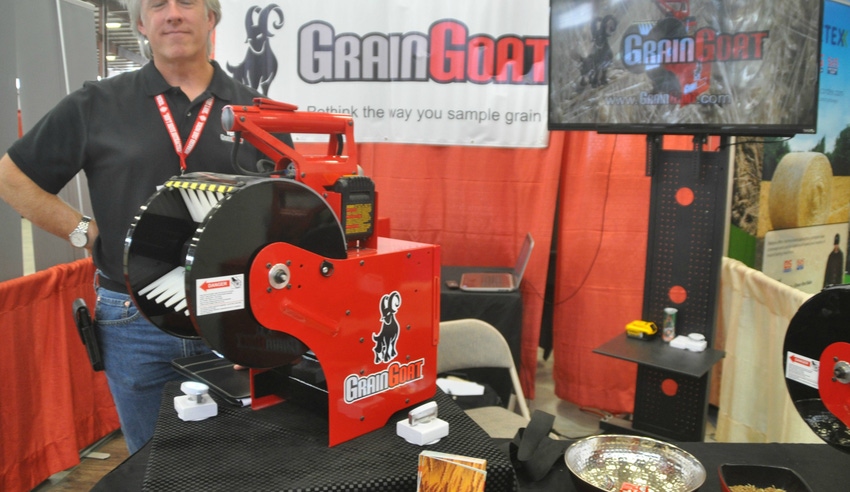
Two teams of entrepreneurs from Nebraska recently competed as finalists in the Entrepreneur of the Year category of the American Farm Bureau Federation's Rural Entrepreneurship Challenge. Each of the four finalists received $15,000 in startup funds.
In October, the top six semi-finalists and four finalists were announced at Washington, D.C., before advancing to the 2017 AFBF Annual Convention in Phoenix in January.
American Farm Bureau Federation's entrepreneur winner was Vertical Harvest Hydroponics of Alaska. The team was led by Linda Janes and Dan Perpich. Janes and Perpich took home a total of $30,000 in prize money, including the $15,000 from sponsor Farm Bureau Bank to produce hydroponic vegetables housed in 40-foot insulated shipping containers.
The Levrack team of Seward won the People's Choice award in the competition and an additional $10,000 in prize money.
Martin Bremmer's business, Windcall Manufacturing Inc., of Venango designed the GrainGoat, a hand-held harvester that collects, cleans and calculates the moisture of small grains within minutes.
Grow Bioplastics of Tennessee, led by Tony Bova, was the other finalist who competed in the final round of the challenge in Phoenix.
Many of these innovations are borne out of necessity, which was the case with GrainGoat, Bremmer says. "Grain farmers can use this small combine with a built-in moisture meter to determine which field to harvest in which order. Before, they had to drive full-sized combines in the field to do that, and they've come up with a reason not to because it's time-consuming," he says. "Here in the Midwest, there are big fields, and some fields are ready to harvest earlier than others. If they're harvesting in the wrong order, they're losing money in evaporation."
A.J. Stauffer of Levrack says the mobile shelving unit was designed to meet the needs of efficient, lower-cost shelving for farm shops and garages. "With mobile aisles, you have hand cranks and rails just to help move the shelves because they're so big," Stauffer says. "The Levrack is very basic and manually operated. Because we were able to suspend the shelf from a pallet rack and a solid roller wheel instead of having them on the floor, it's easy to assemble and move that mobile aisle because it's suspended from above."
Related: Introducing GrainGoat, the world's smallest combine and Innovation is alive and well in rural Nebraska
And there are benefits beyond cash value in the Rural Entrepreneurship Challenge, and that includes networking between different entrepreneurs in similar development stages.
"You quickly realize you're encountering a lot of the same hurdles others might be, and use each other as a sounding board," adds Stauffer. "The learning curve has been pretty fun. When you actually see something from conception to a marketable product we have customers buying, there's a lot of information you have to process. You're essentially drinking from a fire hydrant."
The program also exposes entrepreneurs to the process of venture capital acquisition, and that can be a challenging process, Bremmer adds. "Everybody watches “Shark Tank,” and it's a very cool show, but it's still a TV show," he says. "There's a lot of reality that's overlooked. Deals don't happen that fast. It usually takes over a year for a deal with a private equity and venture capital group. There are a lot of financial things to be prepared for, and that's where the Rural Entrepreneurship Challenge comes in."
Bremmer also credits grants through USDA's Small Business Innovation Research program in helping businesses like his to get off the ground.
About the Author(s)
You May Also Like






